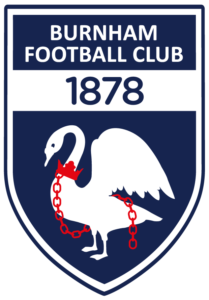Are artificial pitches the way forward?
Opinion article for Blues Talk by Olivia Phantis – football fan, guest writer and friend of Burnham FC – 25/08/2022
The quality of the playing surface is one of the most important things in football, it can be the difference between a fast paced match and slow, laborious play that ultimately ends up with a freak goal or injury. Most clubs pride themselves on the quality of their pitches, and hire top groundskeepers to keep it as pristine as possible. Recently, the debate about the use of artificial pitches instead of natural grass has come up, which has raised the question: are artificial pitches the way forward?
Artificial pitches have been used as far back as the 1980s, with Queens Park Rangers, Luton Town, Oldham Athletic and Preston North End installing them at their stadiums throughout the decade. Fully artificial pitches were banned in the Football League in 1989, and have been ever since, however many National League clubs now play on artificial surfaces.
The benefits of artificial pitches are obvious. They don’t get ruined by extreme weather conditions, be it heavy rain, snow or drought, they can be used much more than natural surfaces, and they don’t require large amounts of maintenance. You would think that these would be the obvious choice, so one has to wonder why the Football League are still hesitant to allow them to be installed at stadiums.
Critics say that artificial pitches can change the bounce and movement of the ball on the ground. Although this isn’t always apparent in games that take place on artificial surfaces, in a more intense, fast-paced game it could potentially make a difference. This does depend on the team’s style of play however, so it may not be an issue for everyone.
Hybrid pitches are currently allowed and in operation in the Football League. These consist of a mixture of natural grass and synthetic fibers, which helps the pitch to stay intact during heavy usage. The Etihad Stadium and Wembley Stadium are among those who use these hybrid pitches. Coventry City have had to postpone their first three home games this season due to an “unsafe” pitch, after the CBS Stadium was used for Rugby 7s matches during the Commonwealth Games this summer. They are currently installing a hybrid pitch to make it playable again.
To answer the question “are artificial pitches the way forward?” you would need to look at the finance and resources of clubs throughout the Football League structure. While it is a large cost to install artificial or hybrid pitches, they are more hardy than their natural grass equivalent. This means the maintenance costs would be lower and more events can take place on it. Whereas for Premier League and ‘richer’ clubs throughout the structure, they can afford to maintain the natural grass pitches that are currently required. There are still the same issues, mainly weather, but they can be managed and dealt with if needed. Although it’s unlikely the Football League will change their stance in the near future, it’s still an important conversation for the top dogs to have.



